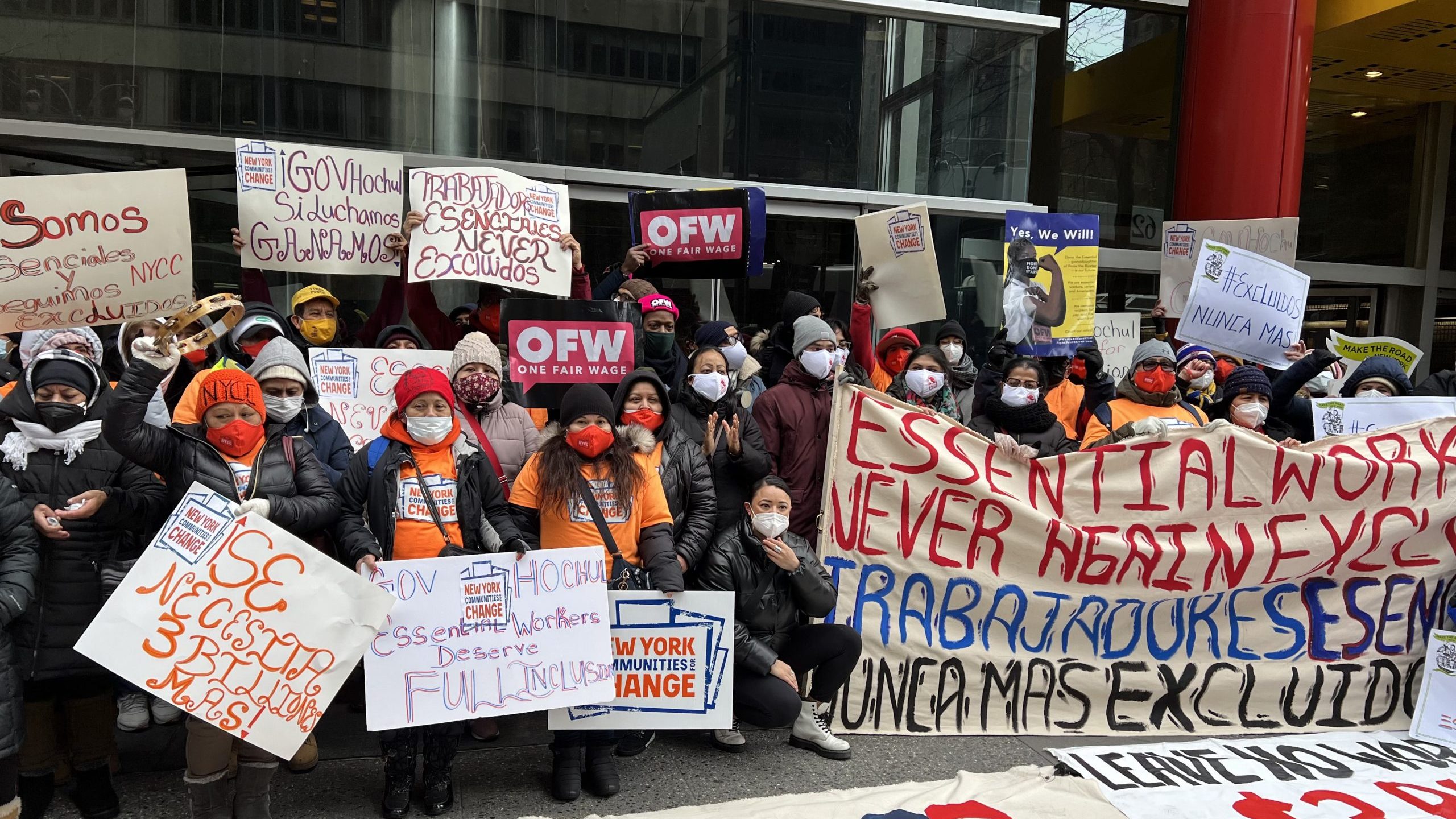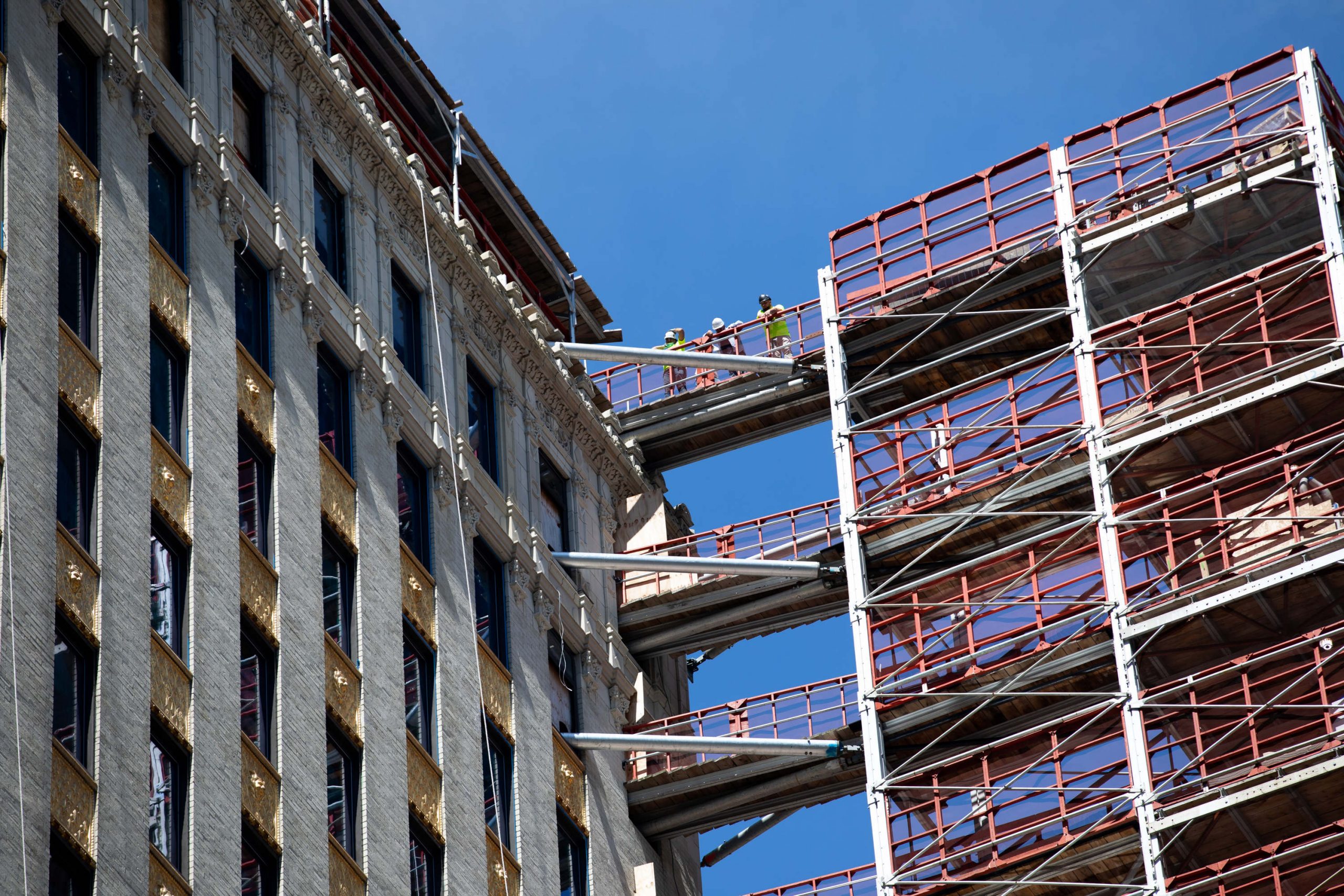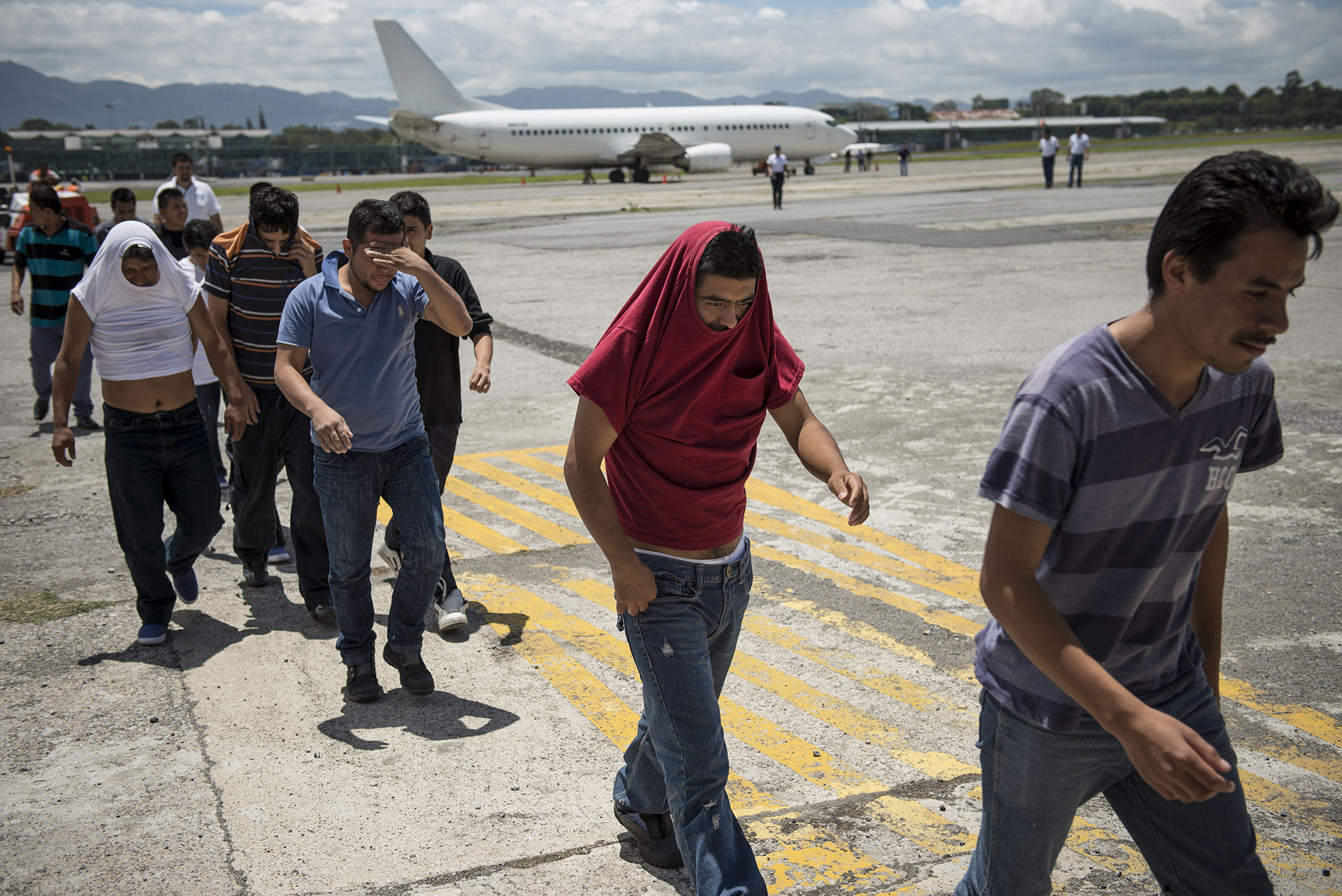The Fund the Excluded Workers coalition held multiple events around the state and New York City to call on Governor Hochul for a $3 billion expansion for the exhausted Excluded Workers Fund and a permanent unemployment insurance alternative for undocumented workers, and others excluded from unemployment benefits.
In front of the governor’s office on 3rd Avenue in Manhattan, members from the immigrant community, local representatives, and advocates held colorful banners and signs, as they gathered to express their demands. They shared stories of would-be beneficiaries of the fund who had missed the opportunity to apply, or were left with pending applications after the program was exhausted.
The demonstration took place a day after the governor released the executive budget for the fiscal year of 2023. The $216 billion budget did not include additional funds for the EWF program.
“We’re deeply disappointed that Governor Hochul has once again ignored excluded workers in her budget — especially as omicron continues to upend our economy. This budget would leave excluded workers to fend for themselves when another wave of the pandemic hits and leaves our state vulnerable to calamity once again,” Bianca Guerrero, coordinator of the Excluded Workers Fund Coalition, said in a statement.
Among the expansion for the EWF, the coalition is pushing for health insurance for undocumented immigrants, minimum wage for tipped workers, a passage of the EMPIRE Worker Protection Act, and the S1175A / A5081A bills which would lift the cap on street vending permits and Street Vendors in New York State. “To win, we need everyone,” said Guerrero at the event.
Also Read: NYC Enforcement Against Street Vendors Picks Up Again After Pandemic Lull
“You have a better chance at winning the lottery than getting a vending permit,” Vicente Veintimilla, 51, told Documented. He has worked as a street vendor for 35 years since he was in his country of Ecuador. He is one of the workers who were unable to apply for the fund because he lacked the documents required by the program.
Since arriving in New York six years ago, he had worked selling different kinds of products, but specialized in numismatics — where he would sell rare coins, bills, tokens to collectors on the streets. But as the pandemic came, Veintimilla says that vendors were “taken from the open spaces of the streets and caged in their apartments.”
“I was frustrated, because I had been used to living with what the streets gave me. That’s where I made my daily salary. To go from there to where you are not able to do or make nothing. To have the kids ask you what’s happening? It was like a temporary jail,” he said.
Desis Rising Up and Moving member, Mehruba Farnaz, 30, who shared her story to the attendees, told Documented that receiving the funds was like a blessing. “I did not know what to do when I heard I got it. It’s so unexpected, I started to think about who I had to pay back and how I could help my family with it.”
Farnaz, who used to work at a Subway, added that she had lost her employment for more than three months, and was relieved to apply for the program even though it took around three months to get approved. “I want an expansion for those who could not apply, but also something permanent so that we won’t be in the same situation always,” she said.
In an act of civil disobedience, the attendees blocked 3rd Avenue by gathering around and holding wide-open a parachute that symbolized the “safety net” that their demands will provide to all excluded workers.
“A safety net with holes isn’t a safety net — it’s a trap,” said Xamayla D. Rose, Deputy Public Advocate of Civic and Community Empowerment for the office of Jumaane D. Williams.
Also Read: How to Apply for a Street Vendor Permit and License in New York City














